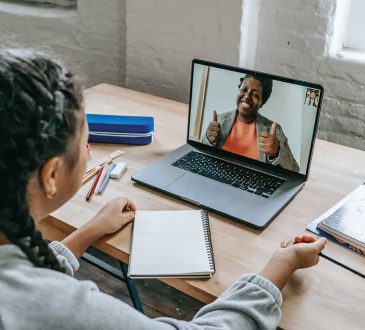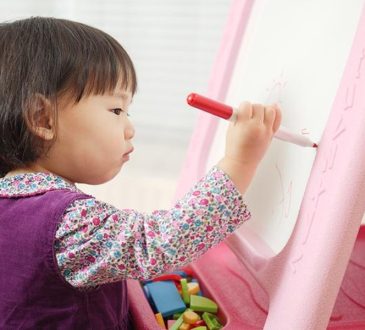
Family interest is still high in piano lessons in Singapore, where music education has historically been linked to well-rounded development. Enrolling your child in piano-focused music programs in Singapore has long-term benefits, even though coding courses and sports camps may be popular right now. Learning to play the piano helps to develop self-discipline, self-confidence, and creativity. These are all vital life skills, which make the pursuit far from an outmoded extracurricular activity. Playing the piano is not an outmoded extracurricular activity; it is a very important one. It supports the development of critical life skills, including self-control, self-assurance, and inventiveness. That’s where learning to play the piano pays off.
Cognitive Benefits That Last Beyond the Keys
Learning music is linked to enhanced cognitive function, according to ongoing research. Youngsters in Singapore who take piano lessons frequently exhibit improved concentration, improved problem-solving skills, and better memory recall. Neural connections are strengthened because playing the piano, in particular, requires a high degree of hand-eye coordination and mental multitasking. These abilities are applicable to academic courses, particularly languages and mathematics. Students studying the piano must be able to read notation, keep beat, and decipher musical phrasing. Overall, brain growth benefits from that degree of cognitive activity.
Building Discipline Through Practice
One of the most valuable lessons a child learns from music classes in Singapore is discipline. Piano lessons require regular, structured practice to progress. Persistence often plays a more significant role in achieving success than talent alone. Children develop a routine, learn to set short- and long-term goals, and understand the rewards of consistency. Over time, this disciplined mindset carries over into other areas of their lives. Parents often report that children who stick with piano also show more responsibility with homework, better time management, and greater resilience in the face of challenges.
Emotional Growth and Self-Confidence
Music is an emotional language, and playing the piano gives children a way to express themselves without words. This is especially important for kids who are shy, anxious, or introverted. Performing in recitals or even just playing a song they’ve learned for family members can be an enormous confidence booster. Piano lessons in Singapore often include performance opportunities that help students gradually overcome stage fright. They learn to handle pressure, recover from mistakes, and accept constructive feedback. These are all valuable experiences that contribute to the development of emotional intelligence.
Customised Learning to Match Every Child’s Needs
Modern piano education is far more adaptive than many parents realise. Music classes in Singapore are no longer one-size-fits-all; they’re designed to suit different learning styles and musical preferences. Whether your child is a visual learner, an auditory learner, or thrives on kinaesthetic interaction, experienced teachers know how to adjust their approach. This ensures that each child progresses at their own pace without feeling left behind. Some schools even offer exam and non-exam tracks to accommodate different goals, from casual learning to formal music certifications.
A Foundation for Future Musical Exploration
Learning the piano gives children a strong musical foundation, making it easier to pick up other instruments later. Once they understand the basics of music theory, notation, and rhythm, transitioning to the guitar, violin, or even drums becomes more intuitive. Piano also helps with vocal training, as students learn pitch control and melody structure. Music classes in Singapore often encourage students to experiment with genres and other instruments after mastering the basics. It’s a gateway to lifelong musical enjoyment and expression.
Creating Positive Family Moments Through Music
Piano practice doesn’t have to be an isolated activity. Families often find that having a piano at home encourages bonding. Parents and siblings can join in on practice sessions, offer encouragement, or simply listen. These shared moments around music can help reduce stress, improve communication, and foster a supportive home environment. Music becomes part of the household culture, not just an extracurricular task. Many students eventually go on to teach younger siblings or perform at family gatherings, creating a cycle of musical engagement.
Long-Term Educational and Career Opportunities
Though not every child will become a professional musician, having formal piano training on a portfolio or application demonstrates dedication and time investment. Music scholarships, leadership roles in school orchestras, or participation in interschool competitions are all avenues made possible through sustained piano lessons. Some students even choose to pursue music education or performance professionally, thanks to the early start and strong foundation gained from quality instruction. Music classes in Singapore often provide these stepping stones through competitions, graded exams, and performance showcases.
Conclusion
Enrolling your child in piano lessons in Singapore is more than a musical decision; it is an investment in their personal, academic, and emotional development. With the right guidance, music becomes a source of confidence, creativity, and discipline that benefits children for years to come. Piano learning remains one of the most effective ways to nurture holistic growth, especially when guided by supportive teachers and tailored programmes.
To give your child a head start in musical learning, contact Sonare Music School for expert-led piano lessons in Singapore today.



